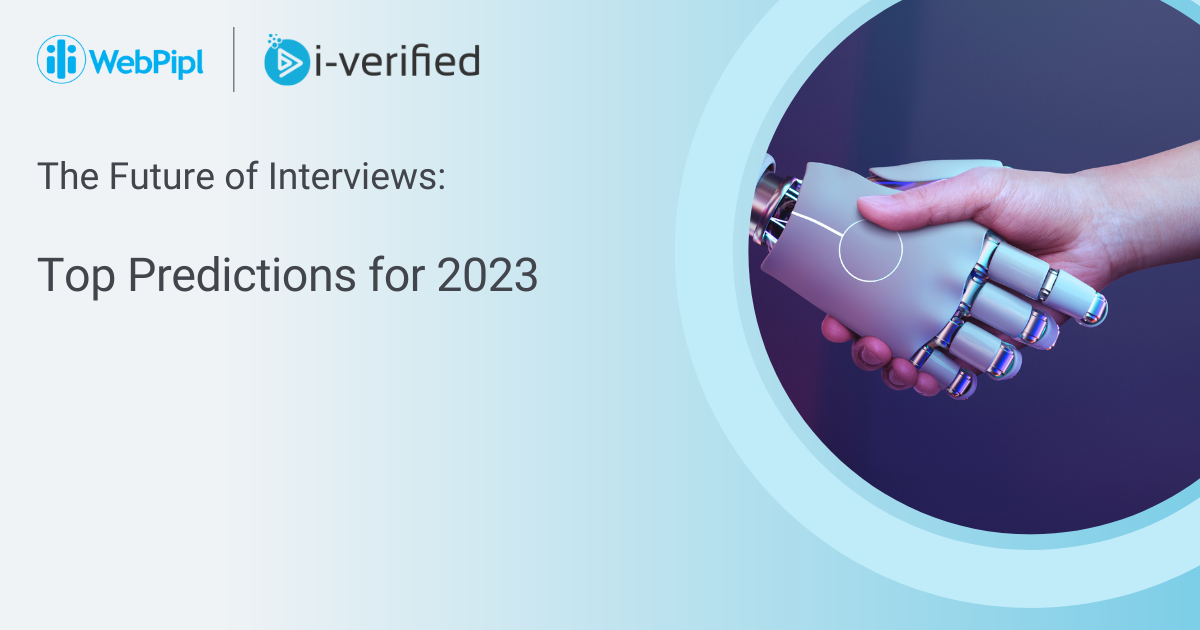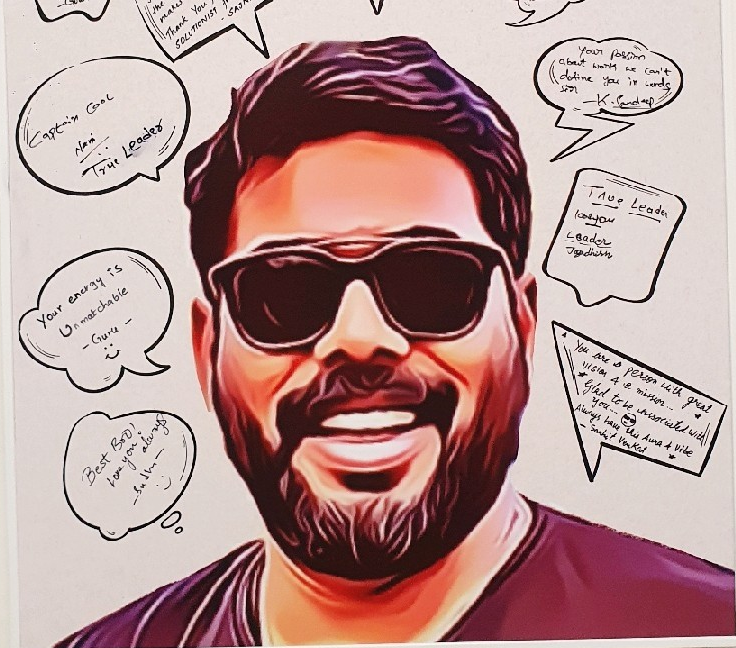
In today’s fast-paced world, it’s important to keep up with the latest trends, especially in the field of recruitment and hiring. Interview trends,are constantly evolving, and staying up-to-date with them is crucial for both job seekers and employers.
In this blog post, we will explore the key interview trends that are predicted to dominate the recruitment stage in 2023.
By understanding and adapting to these trends, job seekers and employers can stay ahead of the game and increase their chances of success.
The AI Interviewer: Analyzing Candidates in the Blink of an Eye
 Artificial Intelligence (AI) has been revolutionizing the recruitment industry by automating various aspects of the hiring process. One area where AI has made significant progress is in the interview process.
Artificial Intelligence (AI) has been revolutionizing the recruitment industry by automating various aspects of the hiring process. One area where AI has made significant progress is in the interview process.
AI-powered interview software can analyze a candidate’s facial expressions, body language, and tone of voice to provide insights into their personality and suitability for the job. Video interviews have also become more popular as they offer recruiters the opportunity to conduct interviews remotely, saving time and money.
Additionally, video interviews can help recruiters assess a candidate’s communication skills and how they present themselves in a professional setting. However, some candidates may find video interviews more stressful, and technical glitches may hinder the process.
Similarly, recruiters may struggle with finding the right balance between AI analysis and human intuition when evaluating candidates. Overall, AI and video interviews have the potential to make the recruitment process more efficient and effective, but it’s important to carefully consider their benefits and challenges before implementing them in the hiring process.
Beyond the Traditional Interview: Exploring Virtual Reality in Recruitment
 Virtual Reality (VR) technology is being integrated into the interview process as a way to provide a more engaging and realistic experience for candidates. Immersive assessments, where candidates are placed in a simulated work environment and are evaluated on their performance, are becoming increasingly popular.
Virtual Reality (VR) technology is being integrated into the interview process as a way to provide a more engaging and realistic experience for candidates. Immersive assessments, where candidates are placed in a simulated work environment and are evaluated on their performance, are becoming increasingly popular.
VR technology allows recruiters to assess a candidate’s skills and abilities in a more accurate way than traditional interviews. Candidates are able to showcase their skills in a simulated environment that closely resembles the real work setting. However, there are also potential challenges with VR technology, such as the cost of implementation and potential technical issues.
Additionally, some candidates may not be comfortable with the use of VR technology in the interview process. Overall, the use of VR technology in the interview process has the potential to revolutionize the way recruiters evaluate candidates, but it is important to weigh the potential benefits and challenges before implementing it.
Beyond Hard Skills: Navigating Soft Skills with Behavioral Assessments
 As the workplace evolves, soft skills are becoming more important than ever before. Employers are seeking candidates who not only have the technical skills for the job, but also possess strong communication, teamwork, and leadership abilities.
As the workplace evolves, soft skills are becoming more important than ever before. Employers are seeking candidates who not only have the technical skills for the job, but also possess strong communication, teamwork, and leadership abilities.
Behavioral assessments are being used to evaluate soft skills by measuring how individuals respond to specific situations and tasks. These assessments provide a more holistic view of candidates’ abilities, allowing recruiters to make more informed hiring decisions.
However, there are also potential challenges with these assessments, such as the risk of bias and the difficulty of accurately measuring complex traits like empathy. Overall, the use of behavioral assessments can provide valuable insights into a candidate’s soft skills, but it’s important for recruiters to use them in conjunction with other evaluation methods.
Breaking Barriers: How DEI is Revolutionizing Hiring Practices
 As companies strive to promote diversity, equity, and inclusion(DEI) in the workplace, these initiatives are increasingly impacting the interview process. Many organizations are taking steps to reduce bias in hiring by implementing strategies such as blind resume screening, standardized interview questions, and diversity training for hiring managers.
As companies strive to promote diversity, equity, and inclusion(DEI) in the workplace, these initiatives are increasingly impacting the interview process. Many organizations are taking steps to reduce bias in hiring by implementing strategies such as blind resume screening, standardized interview questions, and diversity training for hiring managers.
These efforts can help ensure that candidates are evaluated fairly based on their qualifications and abilities, rather than their demographic background. However, there can also be challenges associated with DEI initiatives, such as navigating legal compliance issues and ensuring that diverse candidates are not only brought in for interviews, but also offered positions.
Overall, promoting diversity, equity, and inclusion in the interview process can lead to a more inclusive and innovative workplace culture.
Into the Future: Navigating Interview Trends in 2023 and Beyond
 As we move further into 2023, it’s important for job seekers and recruiters alike to stay up-to-date with the latest interview trends. The interview process is evolving at a rapid pace, and failing to adapt can put you at a disadvantage.
As we move further into 2023, it’s important for job seekers and recruiters alike to stay up-to-date with the latest interview trends. The interview process is evolving at a rapid pace, and failing to adapt can put you at a disadvantage.
Looking ahead, there are several key predictions and trends to keep in mind. For example, AI and video interviews are becoming more prevalent, and VR technology is starting to be used for immersive assessments.
Additionally, soft skills and behavioral assessments are gaining importance, while diversity, equity, and inclusion initiatives are having a significant impact on the hiring process.To succeed in this changing landscape, job seekers should focus on developing their soft skills and preparing for new forms of interviews.
Recruiters should make an effort to reduce bias in their hiring process and embrace new technology to streamline their recruitment efforts.
By being proactive and incorporating these trends into their hiring process, both job seekers and recruiters can enhance their prospects in the competitive job market. Experience the future of hiring with iVerified – a cutting-edge tool that meets and exceeds the expectations of these emerging trends. Upgrade your recruitment process and stay ahead of the competition by trying iVerified today!

Raju Thammala is the founder of WebPipl, an AI-based recruitment company revolutionizing the tech hiring process with products like video interviews, ATS software, etc.
As CEO and founder, Raju Thammala is passionate about leveraging technology to deliver next-gen recruiting services. In his free time, Raju enjoys reading and exploring new cuisines or jet-setting to exotic destinations.
